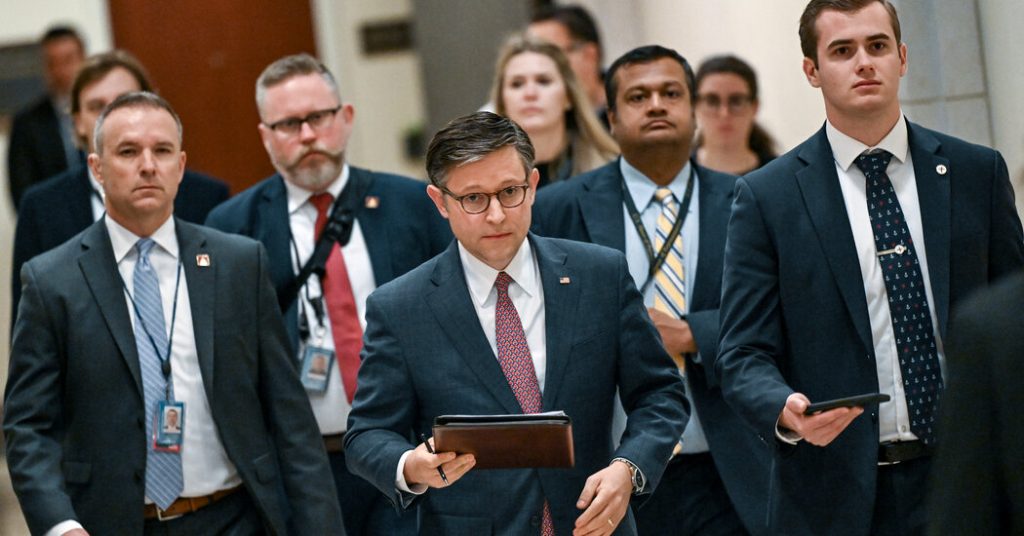Speaker Mike Johnson announced plans to advance a national security spending package to assist Israel, Ukraine, and other American allies. This decision follows weeks of debate on how to provide aid to Ukraine amid resistance from Republicans, especially after a large aerial attack on Israel by Iran. Johnson intends to present a legislative package that mirrors the $95 billion aid bill passed by the Senate, broken down into three pieces for Israel, Ukraine, Taiwan, and other allies, along with a separate bill containing other popular policies among Republicans.
However, the success of this complex strategy in the House remains uncertain due to the tenuous hold Johnson has on his divided conference. Resistance from hard-right Republicans to Ukraine funding and left-wing Democrats to unrestricted aid for Israel could complicate bipartisan support for the package. The plan also poses a risk to Johnson’s speakership, with a threat of ouster looming, although he remains focused on governing and fulfilling his duty. To appeal to Republicans wary of supporting aid for Kyiv, Johnson proposed legislation requiring some funding to be repaid and financed by selling off frozen Russian assets, alongside a bill that could ban TikTok.
Johnson and Representative Steve Scalise highlighted that a significant portion of the aid to Ukraine would go towards manufacturing munitions in the United States and replenishing U.S. military stocks, supporting American jobs. While Senators Schumer and McConnell urged Johnson to pass the Senate-approved aid package as is, he opted to break it into separate bills after consulting with Senate leaders and the White House. Some Republicans viewed this approach favorably, aligning it with the will of colleagues and potentially easing passage through Congress.
In recent weeks, Johnson had faced challenges in structuring the foreign aid package amid divisions within the House, especially concerning aid to Ukraine and Israel. A threat of ouster from Rep. Marjorie Taylor Greene added pressure, who opposed aid to Ukraine without significant concessions on border security from Democrats. Despite these tensions, Johnson insisted on the urgency of supporting Ukraine in the face of Russia’s invasion, highlighting the importance of American involvement. While Greene expressed frustration with Johnson’s plan, her decision on a vote to remove the speaker remains undecided.
Overall, Johnson’s decision to advance the national security spending package reflects a complex political landscape in the House, balancing support for critical aid to allies like Ukraine and Israel with concerns from both the right and left wings of the party. The success of the legislative package will depend on securing bipartisan coalitions to pass each component and navigating challenges within the Republican conference. Johnson remains focused on fulfilling his responsibilities as speaker and addressing key national security priorities amid escalating global tensions.














